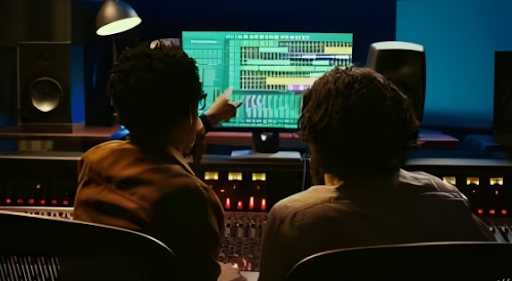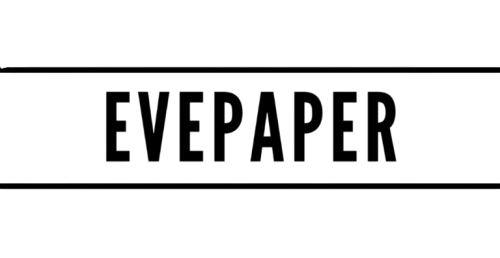
Topic: Music collab app student
It’s midnight in a noisy dorm, the drummer can’t find a rehearsal space, and the guitarist is away for an internship. Yet, somehow, the band still manages to write a new song, share riffs, and even mix a demo—all without meeting in person. How? Thanks to the rise of music collaboration platforms.
For today’s student musicians, being in a band is no longer restricted by location, schedules, or clunky recording gear. With the right music collab app, college bands can brainstorm, record, and produce music together—even if their members are scattered across campuses or continents. These digital band tools are not only transforming how songs are made but also making collaboration more democratic and accessible for students everywhere.
Why College Bands Need Music Collaboration Platforms
College life is busy. Between lectures, part-time jobs, and exams, finding time for rehearsals can be tough. Traditional band practice requires everyone to be in the same room with all their equipment, which isn’t always realistic. A music collab app solves this by letting each member record their part on their own time. Later, the tracks can be layered, edited, and fine-tuned digitally.
Moreover, these platforms encourage experimentation. A singer can upload a vocal idea, and within hours, the bassist can add a groove while the drummer uploads a beat. What would normally take weeks of planning can now be achieved overnight.
Features That Make Collaboration Seamless
The best digital band tools are more than just file-sharing apps. They come packed with features tailored for musicians:
- Cloud-based recording: No need to carry hard drives—students can record from their dorm room and upload instantly.
- Real-time editing: Bandmates can tweak mixes and leave feedback in the same session.
- Virtual instruments: Perfect for when a member doesn’t have access to their physical instrument.
- Built-in chat and video: Communication is key, and many apps integrate messaging so creative discussions flow easily.
Apps like Soundtrap, BandLab, and Audiotool are already popular among students because they’re intuitive, affordable (often free), and accessible across devices.
Here are some apps you can try to keep you and your bandmates connected, even miles apart:
1. Soundtrap
An easy-to-use collaborative platform is Soundtrap, which is owned by Spotify. Soundtrap is a modern DAW that is entirely online and can be a great resource to record your own music, create beats with its extensive collection of instruments and loops, start a podcast, or send a track to friends from different social media platforms to collaborate on your sessions! The music app’s interface is great for beginners, so anyone could get started right away. After a free 1-month trial, Soundtrap does have monthly fees (depending on level you want) but with the Basic version, you can work on up to five projects, with 210 instruments and sounds, and 900 loops.
2. BandLab
BandLab is a cloud-based music app that will give access to a mix to any musicians you want to collaborate with. Like other music making apps on this list, BandLab offers plenty of virtual instruments, effects, and many advanced features to make recording a song in your phone as easy as possible.
3. Soundstorming
Instead of recording a melody or riff idea into your Voice Memos folder on your iPhone, SoundStorming wants you to open their music app to lay the foundations for all your musical ideas. The app aims to make music collaborative and discoverable, by allowing your upload to be heard and seen by a global community of musicians who can then layer ideas, melodies, and lyrics onto your original sound. Thus, a new song or album can be born with someone from across the world! This online music app just launched, so it’s a good idea to get on it now.
Learning Beyond the Jam
For student bands, these platforms also double as learning spaces. They expose musicians to the basics of audio mixing, mastering, and even digital marketing when it comes time to share music. Collaboration tools mimic professional studios, giving students real-world skills that could serve them beyond college.
Even better, these apps foster inclusivity. Students from different colleges, or even countries, can come together to form virtual bands. A guitarist in Delhi might team up with a vocalist in London and a drummer in New York—building friendships and music that transcend borders.
Conclusion
As technology advances, music collab apps are bound to become even more powerful. AI-driven mixing assistants, integrated distribution to platforms like Spotify, and immersive jam sessions in virtual reality are all on the horizon. For student musicians, this means greater creative freedom and fewer logistical barriers.
In short, today’s digital band tools are breaking down the walls of the rehearsal room and creating new ways for students to collaborate, learn, and shine. College bands no longer need to fight for space in a practice hall—the stage is now digital, global, and open to anyone ready to play.
References
[1] | Musicians Institute, “8 Collaborative Music Apps To Make Music With Anyone, Anywhere,” 23 April 2020. [Online]. |
FAQs
Q1. What is a Music collab app student platform?
A Music collab app student platform is a digital tool designed for students in bands or music projects to create, share, and produce music collaboratively. It allows multiple users to record, edit, and mix music tracks remotely, removing the need for in-person rehearsals. These platforms often include cloud storage, virtual instruments, chat features, and real-time editing, making collaboration seamless for student musicians.
Q2. Why should college bands use a Music collab app student?
College bands face scheduling conflicts, distance, and limited access to rehearsal spaces. A Music collab app student solves these problems by allowing band members to record their parts anytime and anywhere. It also encourages creativity, experimentation, and learning by letting students work on projects asynchronously while still maintaining a cohesive sound.
Q3. Can a Music collab app student improve music skills?
Yes, using a Music collab app student helps students learn recording, mixing, and production techniques. These apps often include tutorials and virtual instruments that teach music theory, rhythm, and sound design. By experimenting in a collaborative environment, students enhance their technical skills and develop better musical instincts.
Q4. How do I get started with a Music collab app student?
Starting with a Music collab app student usually involves signing up for the platform, creating a project, and inviting band members. Students can then upload recordings, add virtual instruments, or layer tracks. Popular apps like Soundtrap, BandLab, and Soundstorming provide free access to basic tools, making it easy for any student to begin collaborating immediately.
Q5. Are Music collab app student platforms free?
Many Music collab app student platforms offer free versions with limited features. For instance, Soundtrap and BandLab allow basic recording and collaboration without subscription fees. Premium plans usually unlock additional instruments, loops, and cloud storage. Students can start free and upgrade as needed to access advanced production tools.
Q6. Can Music collab app student tools work on mobile devices?
Yes, most Music collab app student platforms are mobile-friendly. Apps like BandLab and Soundtrap support iOS and Android devices, letting students record and edit tracks directly from their phones or tablets. This mobility ensures that even students on the move can contribute to a project seamlessly.
Q7. How does a Music collab app student platform handle real-time collaboration?
Some Music collab app student tools allow real-time collaboration, where multiple users can work on the same project simultaneously. Features include live chat, comments, and instant updates to tracks. This ensures that students feel connected, even if they are geographically separated, and fosters instant feedback and creative discussion.
Q8. Are there educational benefits to using a Music collab app student?
Yes, beyond music creation, a Music collab app student helps students learn project management, teamwork, and digital communication. It mimics professional recording studios, giving students hands-on experience with production workflows, collaboration strategies, and even digital marketing when sharing music online.
Q9. How does a Music collab app student support international collaboration?
With cloud-based storage and online project access, a Music collab app student allows students from different countries to work together. A guitarist in Delhi can record a riff while a drummer in New York adds beats, and a vocalist in London layers vocals. These platforms break geographical barriers and foster diverse creative partnerships.
Q10. What are the best Music collab app student tools for beginners?
Beginners benefit from apps like Soundtrap, BandLab, and Soundstorming. These Music collab app student platforms provide intuitive interfaces, preloaded loops, virtual instruments, and step-by-step guides, making it easy for students with limited technical experience to start producing music immediately.
Q11. Can a Music collab app student help with songwriting?
Absolutely. A Music collab app student allows members to upload riffs, chord progressions, or lyrics. Others can add layers, suggest harmonies, or modify arrangements. This iterative process accelerates songwriting, enabling students to create full compositions without being in the same room.
Q12. How secure are Music collab app student platforms?
Most Music collab app student platforms use cloud-based security protocols to protect files and project data. Students can control access to projects, invite collaborators selectively, and back up work automatically. This ensures that original recordings and creative ideas remain safe while being shared with authorized members.
Q13. Can Music collab app student platforms integrate with other software?
Yes, many Music collab app student platforms support integration with other DAWs (Digital Audio Workstations) and tools like GarageBand, Ableton, or Logic Pro. Students can export tracks for advanced editing, add external plugins, or share projects on social media, enhancing both creativity and professional potential.
Q14. How do Music collab app student platforms enhance creative learning?
These platforms promote experimentation, feedback, and peer learning. A Music collab app student project encourages students to try new genres, instruments, or production techniques. By collaborating digitally, students receive constructive input and learn from their peers, which strengthens musical intuition and innovation.
Q15. What is the future of Music collab app student tools for college bands?
The future is bright. AI-assisted mixing, virtual reality jam sessions, and integrated streaming options are emerging in Music collab app student platforms. These innovations will allow students to collaborate globally, produce professional-quality tracks, and gain skills that extend beyond college, preparing them for careers in music production, performance, and digital content creation.
Penned by Gauri Singh
Edited by Aarshi Arora, Research Analyst
For any feedback mail us at [email protected]
Transform Your Brand's Engagement with India's Youth
Drive massive brand engagement with 10 million+ college students across 3,000+ premier institutions, both online and offline. EvePaper is India’s leading youth marketing consultancy, connecting brands with the next generation of consumers through innovative, engagement-driven campaigns. Know More.
Mail us at [email protected]
